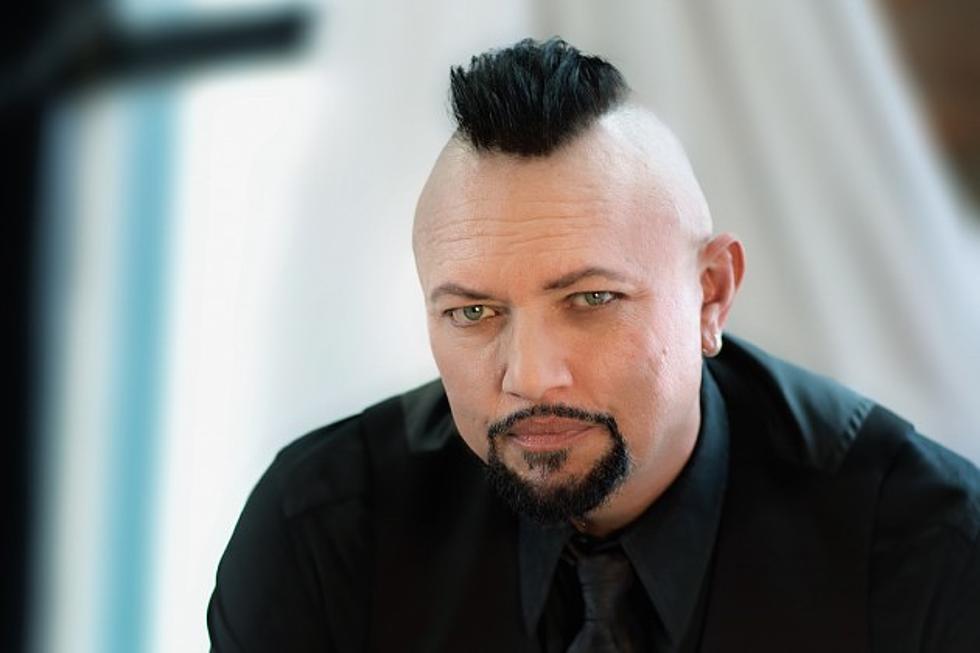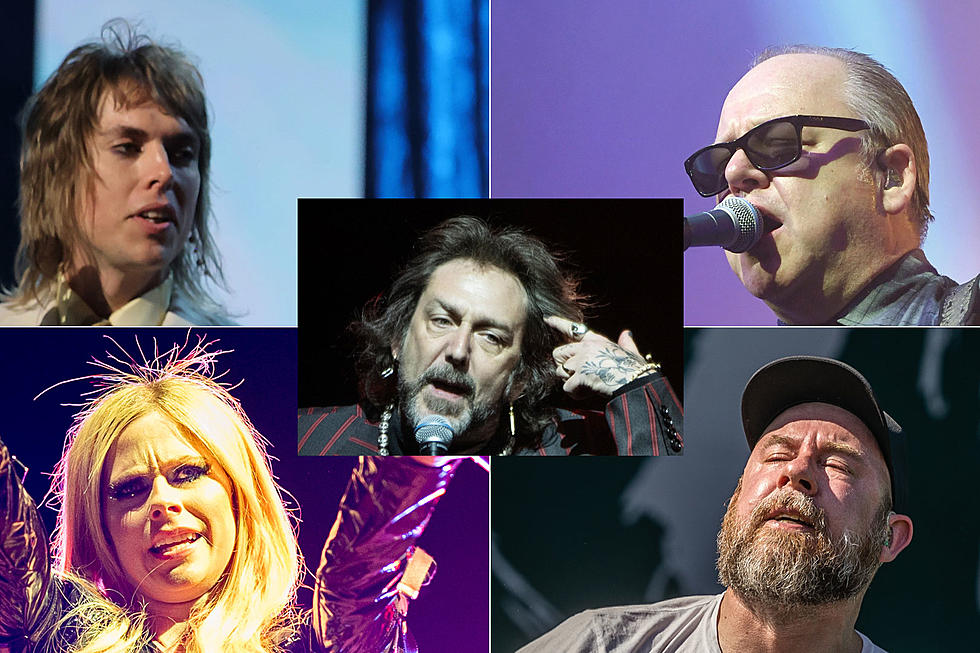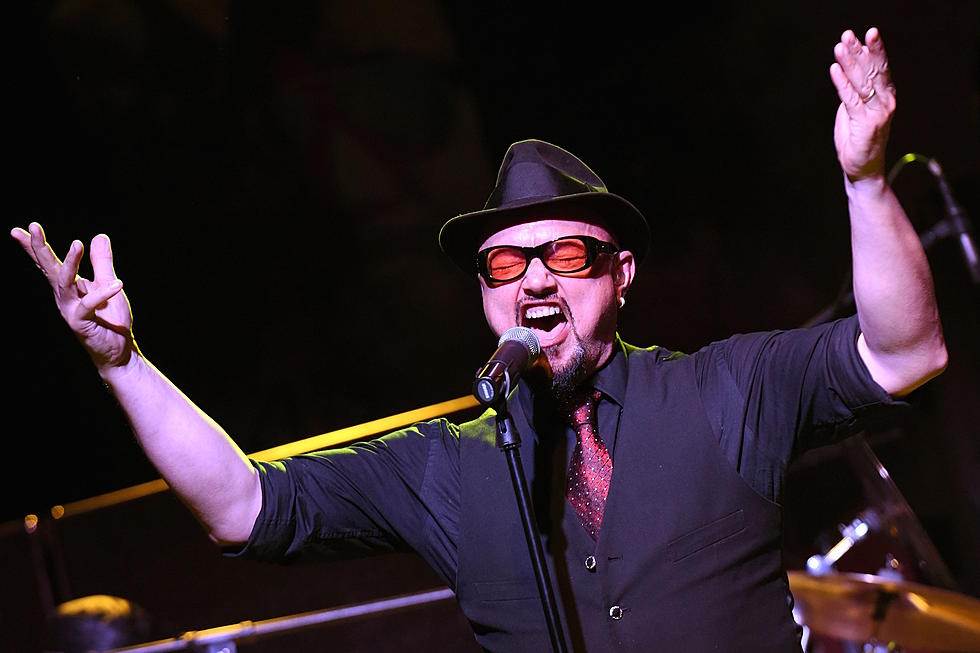
Geoff Tate Talks Operation: Mindcrime Trilogy, ‘The Key’ Album + Working With Dave Ellefson
Out of the ashes of his split with his longtime band Queensryche, Geoff Tate has risen with his ambitious new project Operation: Mindcrime. The mastermind behind Queensryche’s concept albums has created a story that will unfold across three different albums as a musical trilogy.
The first is the recently released The Key, which introduces the story’s four main characters who team up to create a technology that allows users to see an alternative reality. Conflict arises as the group splinters over how to, or whether to, capitalize on their creation.
We caught up with singer Geoff Tate, and in our previous published segment from our interview, he discussed his split with Queensryche and how Operation: Mindcrime is a musical project, not a band.
In this portion of our exclusive interview, Tate explains how he came up with this project's moniker. He also shares the storyline behind his three concept albums, how this music differs from his solo albums, working with Megadeth’s Dave Ellefson, tour plans and a whole lot more. Check out the interview below:
Why did you choose the name Operation: Mindcrime for this project?
I was looking for a name or a slogan or a phase that would do two things. One kind of to capture the tone of what I am doing musically now which is conceptual storytelling albums and secondly a name that would be easy for my fans to find in this complete deluge of information in the age we live in now.
How is Operation: Mindcrime’s music different from your two previous solo albums?
First off, it’s a trilogy album, it’s one long story told over three records so that’s quite different. There were different musicians involved, a different kind of focus on the songwriting itself and what was to be accomplished with it. It’s very different making a concept album as opposed to an album of standalone tracks. You know it’s kind of a different mindset altogether when you go into it… kind of apples and oranges really.
Can you tell us about how you came up with the storyline for the three albums and give us insight into what is happening in The Key?
It’s a trilogy; it’s three records that tell one story. I’ve wanted to make a trilogy for a number of years and kind of waiting to come up with a story that would support that. Last year on a hike through Northern Spain I wrote the story and it really kind of just began flowing and took on a life of its own, where you have this idea and it starts developing and you come up with ideas very easily and it starts growing and you just kind of want to stay out of your own way and let it take its course. So, for the last year I’ve been working on all three albums and really enjoying the process. It’s a very comfortable process working with people that have been involved with it.
The storyline is a bit of a mystery so I don’t want to talk about it too much and spoil it for people. You know, as a parent you start very early with your child’s development defining their reality and by that I mean we teach them definitions of everything. You know this is a chair, this is a car, this is the sky, you know an automobile, table you name it… a dog, a cat. Through those definitions is how we define what our reality is and this practice continues for as long as we live we continue defining our reality.
In my story there are four individuals that come together and create a technology that allows the user to see reality and experience reality in a different way, a different way that was unknown to them. So, you can imagine what that would mean. The reality that you know, the reality that you are used to and comfortable with is one thing and the new reality is something completely different where the rules from your previous reality don’t apply. So, it opens up a whole new vista of possibilities.
So the four people develop the technology and they realize quickly that this could ultimately change the world in a dramatic way. Out of that comes a conflict between the four people. Some of the people want to take the technology and market it and sell it and become fabulously rich and others in the group have a more altruistic viewpoint and they think the benefits this technology will change the world in a good way and they want to give it to the world.
So, what the first album does is it begins the story and introduces the characters, there are four main characters, and gives you a little insight into the technology and also exposes the conflict that arises.
What is the status of the other two albums in the trilogy?
The second one is written and recorded and in the mixing stage right now and then mastering will happen after that. The third album is mostly written.
When can fans expect the second album in the trilogy?
I think next September. Frontier is going to release them between nine and 12 months apart.
"Re-Inventing the Future" harkens back to Queensryche songs like "The Mission" and "I Don’t Believe in Love." Is that something you tapped into for that song?
It actually has quite a bit of different Queensryche songs involved in it. You know there is a bit of “The Mission,” a bit of “Screaming in Digital,” “I Don’t Believe in Love” is in there. You know just various songs I’ve written over the years kind of found their way into that song.
It’s interesting if you listen to all the songs I’ve ever written, you’ll find that there are connecting pieces through all of them. There are melodies that are similar or reminiscent of other tracks. There’s definitely my lyrical phrasing is rather unique I’m told (laughs). I’m not sure if that’s a good thing or a bad thing. You know as a writer there are chord progressions that are just part of what you do. They are things that are just embedded in your psyche and they keep showing up in different ways on different songs throughout different albums over the years.
"The Stranger" is a standout track on the album. Can you tell us about that song?
"The Stranger" is a cool track, I really like that one. The way that I kind of approached this record that if it were a film, each song would be a scene in the film. So, “The Stranger” introduces the character of The Stranger, who is an assassin that’s hired by one of the opposing team, I’ll call them, who want to sell the technology and become filthy rich. They hire an assassin to kill the other guy who’s leading the campaign to give the program away. So, The Stranger is a character who is incredibly cold and calculated and confident as I would suppose a hitman would be -- someone who is cut off emotionally, without empathy, who calculates his every move and has a high degree of confidence in his ability. That was kind of the delivery I was going for with that song in the construction of it.
It’s got a great guitar riff. Scott Moughton wrote the guitar riff for it and it just has a swagger that I picture a guy like The Stranger would have.
"On Queue" is musically the polar opposite of "The Stranger.” Tell us about that track and where it fits in the story.
The main character of the album, which is me, is realizing he may not have as much time as he thought. So he is trying to figure out what to do. The program has a protection mechanism on it, a code, so he’s trying to pass off the code to his friend or assistant who makes sure that it’s safe and that nobody gets it.
I like that track a lot. It kind of has this ethereal feel to it. But with these kind of really recognized digital sounds and one of the keyboards is playing a sequence that kind of ties into the idea about the protection code.
It also has a bit of an unresolved feel at the end of it that leads you into the next track. So, I like that too because we know actually what happens and there’s a bit of a hole in the story there. So you don’t know if the protection code is safe or if it’s not, you know.
Can you tell us about the song “The Fall?”
That track is the ending of the first record and also the beginning of the second record, which I think is really cool. It has a bit of despondency to it because the main character is realizing that greed and self-preservation, if you look throughout history, it’s always the downfall of progress and downfall of man has always been this same thing. People not being able to see outside of themselves and pursuing self-interest and so he’s kind of lamenting about that through the lyrics.
Yeah it just has a real feeling of despondency, which I like a lot, especially for the last track on the album. It kind of leaves you unsettled and that’s what I kind of envisioned for the end of the first album was to portray that feeling of uneasiness. You know, what’s going to happen next? It leaves you on the edge of your seat so to speak.
Any thoughts of turning this trilogy into a film?
I don’t know. That is a whole different kettle of fish. Maybe, maybe one day if somebody gets behind it and is interested in pursuing that I’d definitely be open to hear what they had to say, you know.
How much did Megadeth’s Dave Ellefson contribute to the album?
He played bass and co-wrote “Re-Inventing The Future” on the first album and he has more songs on the forthcoming albums too.
I didn’t know Dave until recently. He is a very vibrant personality, very up and positive and a creative guy, who is constantly offering up creative suggestions, which I love that kind of personality. I’d much prefer working with somebody like that, who is offering up a number of different ideas rather than not offer up anything at all or waiting to kind of be told what to do. He is very confident in his playing and it shows. He can bark with the big dogs as they say, you know he’s not inhibited by insecurity.
Kelly Gray is a major contributor to Operation: Mindcrime. What did the guitarist bring to this project?
Kelly recorded quite a bit of the record. He’s a really fine musician and songwriter as well. Also from the production standpoint recording, he’s invaluable in that he really has a handle on that. He’s a bundle of creativity and we’ve had a really long working relationship since 1979. So, we’ve kind of grown up together and people say that we have our own language that we speak (laughs). We kind of finish each other’s sentences and we kind of speak in short hand that seems natural for me and probably for him too. We don’t really need elaborate on things because we always see eye to eye with many issues when it comes to music.
Who will be preforming as Operation: Mindcrime on your upcoming European tour?
I think it’s Simon Wright and John Moyer on the rhythm section and Kelly Gray, Scott Moughton and Randy Gene… it will be that group I think.
When do you plan on touring the U.S.?
I think it will be sometime around February.
What can fans expect from you live show?
Well I really want to present the album in its entirety, so I think that will be the central point of the show. Gosh I ‘ve got 184 songs to pick from so it will be a long show (laughs). I probably can’t play all of them, but I will probably bookend the show with songs from my vast catalog.
Do you have a message to your fans about this project?
Well I hope that they check out the record and find it as interesting as I do. I think it’s one of the more interesting things I’ve done in my musical career. I hope to see everyone coming out and enjoying the tour. I think the tour is going to be really interesting and thought provoking and quite a different experience than perhaps that they’ve seen me involved with before, you know. I think that’s gonna be a good thing an I’ve very excited about it, of course.
Many thanks to Geoff Tate for the interview. Operation: Mindcrime’s 'The Key' is available now at iTunes. The project will kick off their European tour in Memmingen, Germany on Nov. 13. Check out their tour dates here.
Watch Operation: Mindcrime’s “Burn” Video
More From Loudwire









